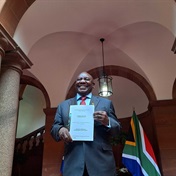Thinking about the parliamentary debate on racism held this week and reflecting on the various suggestions for tackling racism put forward, it occurs to me that, as South Africans, we are misunderstanding the problem. We are concerning ourselves only with racism as an experience, not as a systemic economic issue.
There are three common myths which we, as whites, tend to hold dear, as I have found in more than two decades of working for diversity.
The first is the myth of the rainbow nation. This suggests that we have managed to overcome all our differences to meld together into an all-loving, all-understanding group of many-hued South Africans, blind to colour, at one with each other, and ready to set an example to the world.
The second myth is that we are capable of being forgiven for apartheid. This myth encourages us to believe that black South Africans have forgiven us, or are ready to forgive us, for crimes we have never acknowledged and for which we have paid no price.
The third myth is white privilege, and many of us don’t believe it exists. Whites who don’t understand white privilege will tell you “my family is poor”; “we had to work hard for everything we got”; “nothing was given to us on a plate”; “I worked hard to put myself through university”; and “now with this BEE thing, we have reverse racism”.
All of these myths are profoundly reductionist and lead us to feel that racism is about attitudes and how we feel about one another.
The hard truth is that if there were no racists in South Africa, there would still be racism, since racism is structural, systemic and institutionalised. In a recent article, my son, Sizwe Mpofu-Walsh, uses the analogy of South African society as “a profoundly complex shared home filled with archways, pathways and enclaves. Its architects built in advantages for white inhabitants from the very start.
White South Africans enjoyed the best rooms, and reserved for themselves by force special passages that maximised their comfort and position of domination. Black South Africans were forced into the worst parts of the home, and denied access to the staircases and doorways that led to its upper levels, secret chambers and gardens. They were left with no other option but to become servants of their white co-occupants.”
Even if we as the white inhabitants were to change our mind-sets and attitudes, this would not affect the inequality in South Africa. Unless we change the structure of our society – our unequal education, our unequal healthcare, the racism that exists in the structures of the economy – even without racists, we shall still have racism.
We are also long past a time for apologies. Nothing will suffice but breaking down the home and digging up the foundations. All the conferences on nonracialism and social cohesion, all the weeks of nonracialism and registers of racists will make no difference. We have to address the systems that maintain our privilege.
For example, if we consider universities, since 2014 the majority of students at our “previously white” institutions are black, so a new institutional culture needs to develop in tune with black post-colonial thinking. We need to break down the culture of white exclusivity, remove the statues to the heroes of colonialism and apartheid, revisit our curriculums and the languages used, and appoint staff reflective of this new era.
So, is there a role for whites to play in antiracism work? I would suggest it is limited; it involves taking a back seat and being prepared to listen. It involves working within white communities to inculcate racial consciousness and calling out racism when we see or hear it.
It involves teaching our children about racism and recognising that they do indeed see colour. If we fail, we run the risk noted by Alan Paton: “The one great fear in my heart is that when they [the whites] have turned to loving, they will find we [blacks] are turned to hating.”
Oakley-Smith has worked with diversity and antiracism in corporations and higher education for 23 years.




 Publications
Publications
 Partners
Partners








